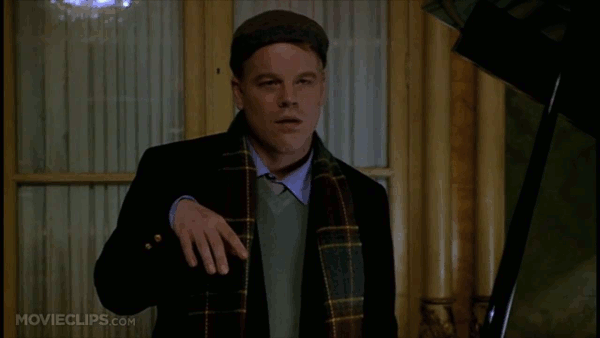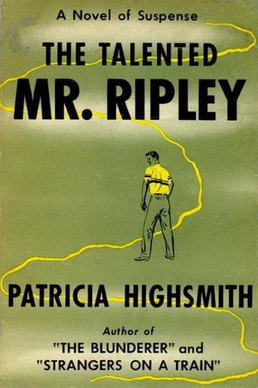I’ve been trying to catch up on my reading list this summer. Like with all things for me (expect for maybe watching films), reading is often all or nothing. I tend to read most when preparing a course. In fact, I have come to rely on imagining new courses to inspire my reading lists. Few things are more enjoyable than imagining a series of books and/or films that create a discursive arc around a topic or genre. The Hardboiled class in 2012 or the True Crime course in 2013 (both co-taught with Paul Bond) were two recent highlights along those lines.
That said, my mind has been relatively far away from the classroom over the last year, a break I’ve truly appreciated. While clocking far more than 40 hours a week at Reclaim Hosting, it hasn’t felt like a job. Between working at home, being constantly surrounded by my family, traveling less (and when I do with Antonella and the kids), and having the fresh context of living abroad, the last 10 months has felt like the sabbatical I would never have gotten from higher ed. What’s even better is that it doesn’t seem to be temporary. Reclaim turns three years old this week, and it has never been greater!
So while at some point in the future I’d like to return to the classroom, it’s not in the cards anytime soon. That being the case, I need to find my reading groove independently because nothing is more generative for the imagination than good books, except maybe good movies. I’ve been toying with Martin Weller’s book-a-week run in 2015, but given how hot and cold my reading can be I’m afraid I’ll miserably fail and then resent the idea of meeting a quota. So, I don’t have a plan other than saying I need to read more, and hopefully as a result I’ll blog about what I’ve read and the virtuous cycle of the bava will continue. Also, I want to publicly commit to reading as little nonfiction as humanly possible 🙂
Anyway, all this is just self-indulgent foreplay to the point of this post: I finally finished a book! The last fiction book I finished before this was back in March, I re-read Cormac McCarthy’s Blood Meridian because I needed the strongest antidote possible to the constant sense of elation I was was feeling since moving to Italy.* Since then I have been reading four different books on and off: The Talented Mr. Ripley (1955), The Shrinking Man (1955), The Crossing (1994), and Europe Central (2005). I’m not sure the link between these novels other than they’re all by American authors, but I finally decided to lock-in and knock one out this week.

The lucky winner was The Talented Mr. Ripley, a perfect summer brew. I was inspired to read Ripley after watching the 1960 French film adaptation of the novel titled Purple Noon (Plein Soleil) a couple of months ago. I was struck by the ending of the French version of the film (starring the young Alain Delon) because it was so bizarre. In this version, Ripley gets caught for murdering Dickey Greenleaf when Dickey’s sailboat is dry docked revealing his decomposing body attached to the hull. A gruesome twist, and radically different than the more recent ending in Anthony Minghella‘s 1999 version wherein Ripley murders his lover on a ship to Greece, continuing his sociopathic compulsion to hide his dark past. I didn’t care for Minghella’s The Talented Mr. Ripley when I saw it in the theaters, but over time I have a bit more respect for it. Jude Law’s and Philip Seymour Hoffman’s performances remain a highlight; no one plays a spiteful, entitled American rich boy quite like Hoffman—his condescending laugh as Freddy Miles was worth an Oscar alone. This version is far more faithful to the book than Purple Noon in plot and character development, but adds a plot line about Dickey’s suicidal Italian mistress and the bizarre love triangle between Ripley (Matt Damon), Meredith Logue (Cate Blanchett), and Peter Smith-Kingsley (Jack Davenport) towards the very end which dramatically changes the original tenor of the book.

Which brings me to the reason I wanted to write this post to begin with, Patricia Highsmith’s novel is far more sinister than both film versions. After marking the difference between the chance twist ending in Purple Noon and the insistence on Ripley’s sociopathic behavior in Minghella’s The Talented Mr. Ripley, I was increasingly more interested to see how the novel would end. As it turns out, the ending is far more haunting than both of them. Ripley gets away with it. He lands in Greece with four policemen waiting at the dock. Imagining the game is over, he is resigned to turn himself in given the news that Dickey’s belongings have discovered in Venice, which coincides with his mailing of an incriminating letter which includes a forged version of Dickie’s last will and testament bequeathing his personal fortune to Ripley. But the cops are not there for him, what’s more he soon after receives a letter from Dickey’s father confirming the receipt of the will and promising him the fortune. The novel ends with Ripley having escaped justice, leaving him free to pursue is bourgeois dreams. It reminds me of Woody Allen’s Crimes and Misdemeanors (1989): there’s no personal guilt that haunts the main character for the rest of their life or drives them mad or to confess. Rather , once it escapes detection it becomes removed from any lived reality. I loved the book for this, and also I dug the way Highsmith rendered Ripley as a such an unremarkable killer, a truly fascinating character. The murders are not so much murders as expedients Tom Ripley needed to attend to in order to live the life he has been in line for. And what’s so haunting is this is not so much about murderous rage and psychosis (although it is that) as much as it is about attractive leather suitcases, expensive meals, and various luxurious things that make you feel better, as Ripley acknowledges:
Maybe he’d never go back to the States. It was not so much Europe itself as the evenings he had spent alone, here and in Rome, that made him feel that way. Evenings by himself simply looking at maps, or lying around on sofas thumbing through guidebooks. Evenings looking at his clothes – his clothes and Dickie’s – and feeling Dickie’s rings between his palms, and running his fingers over the antelope suitcase he had bought at Gucci’s. He had polished the suitcase with a special English leather dressing, not that it needed polishing because he took such good care of it, but for its protection. He loved possessions, not masses of them, but a select few that he did not part with. They gave a man self-respect. Not ostentation but quality, and the love that cherished the quality. Possessions reminded him that he existed, and made him enjoy his existence. It was as simple as that. And wasn’t that worth something? He existed.
The above passage (thank you Submitted for Your Perusal) is the culminating articulation of the innumerable small, subtle ways Tom explains away the bloody trail of events that have made his new lifestyle possible. It’s doubly chilling when you think about this passage in relationship to how we must everywhere ignore the violence that makes our lifestyles possible (the food we eat, the cars we drive, the freedom we spill, etc.). More so than the film versions which ultimately punish Ripley for his transgressions, Ripley gets away with murder in his duplicitous pursuit of wealth, luxury, and some commodified meaning to his existence. This unexpected ending wherein Ripley gets away with it came together brilliantly by providing a powerful critique of the post-war American mind through a international lens.
Reading The Talented Mr. Ripley (as all sociopathic US ex-pats in Italy should) found a passing reference to Trento. pic.twitter.com/BRxDZ8I709
— Jim Groom (@jimgroom) July 23, 2016
What’s more, it didn’t suck when Tom Ripley made his way to Trento to buy a car. I am in that very city with the same situation presently. When fiction and reality fuse, post-war america burns!
____________________________________________
* I read E.F. Shumacher’s Small is Beautiful in preparation for this presentation I gave in May at AMICAL.



Nice choice! I just finished the Audible version a couple weeks ago. What I found interesting about the audio version is that it takes that third-person subjective narration and does it in Ripley’s voice, which heightens the sense that he’s watching himself from outside. BTW, Senses of Cinema has a good article on Ripley (http://sensesofcinema.com/2000/feature-articles/ripley/).